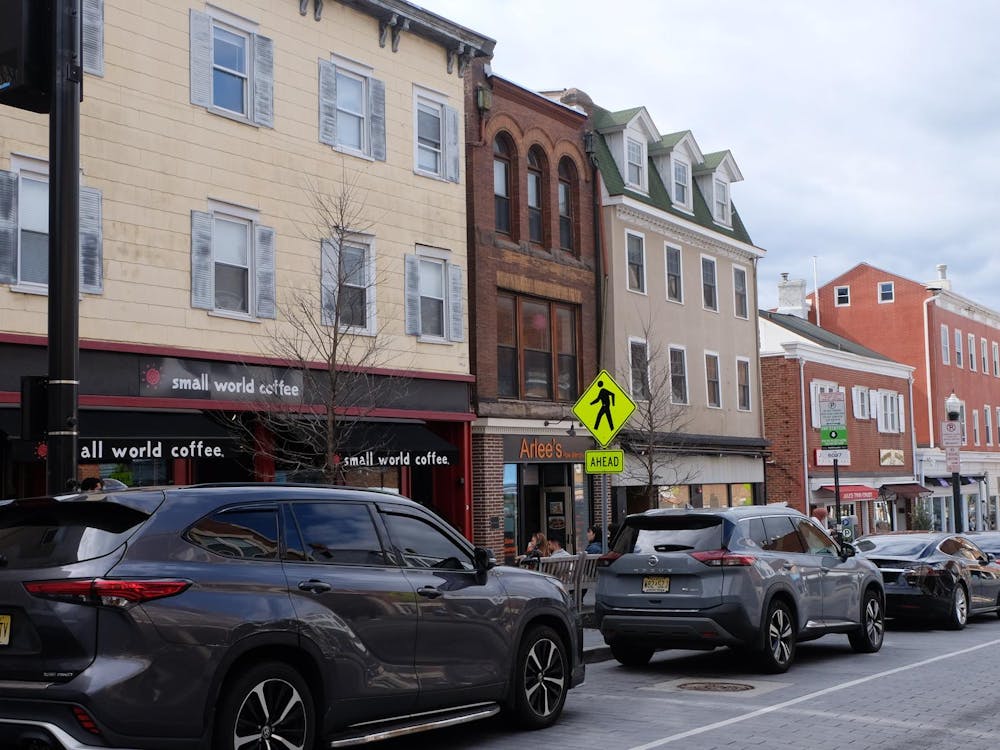The School of Public and International Affairs (SPIA) hosted Krish O’Mara Vignarajah, President and CEO of Lutheran Immigration and Refugee Service (LIRS), to discuss migration, the refugee crisis, and her family’s experience with immigration on Nov. 3.
LIRS is a non-profit organization working to help refugees and migrants settle in the United States by helping them find jobs, housing, and schools.
“The immigration system has long been dysfunctional,” she said. In response, LIRS works to “set individuals, who are new Americans, up for success.”
Vinarajah’s work addressing global migration connects to her own family’s experience immigrating to the United States, as her parents fled Sri Lanka at the onset of a civil war.
“Anytime I think it’s challenging or is this the right thing to do,” she said, “is the moment I think I have an inferiority complex because my parents did the real hard work.”
“Someone in your family made the decision to come to this country and thank goodness for that,” she said.
Before beginning her work with LIRS, Vinarajah served as the policy director for Michelle Obama and worked at the State Department as senior advisor under Hillary Clinton and John Kerry.
Now, she directs LIRS to facilitate partnerships between the federal government and nonprofit organizations.

Under the Trump administration, LIRS was put in a difficult position, as the government was “undertaking a war on immigrants and slashing programs across the board,” according to Vinarajah.
Vinarajah said she works to change public perception of immigration as a “net positive” for the American workforce and population. Despite being a largely federally funded non-profit, LIRS started to seek new ways to diversify its revenue by appealing to companies and “pitching immigration not as a corporate social responsibility issue, but a business bottom line.”
“[This process] pays huge dividends in terms of the return to our country,” she said.
Vinarajah described working past xenophobic perspectives in the United States as another obstacle. She noted that many people have misconstrued ideas about the southern border. “All they hear is that immigrants made the southern border very dangerous.”

She attempted to disprove common myths about the southern border. “Twenty-one bordering counties of the southern border are actually safer when you compare them to the interior counties of the same size,” she said.
Vignarajah said that xenophobia has had an economic impact on Americans’ lives, through lost labor.
“The price premium you pay for anti-immigrant and xenophobic stances is milk. It’s eggs. Your coffee shop being closed two days a week,” she said.
Vignarajah also called attention to an impending crisis that she says the Biden administration should focus on: climate displacement.
Climate migration is defined as migration caused by slow-moving or sudden climate disasters, such as rising sea levels or wildfires, which results in displacement of populations within and across borders.
Vignarajah cautioned that it is not a “futuristic dynamic,” but rather a phenomenon taking place today.
“In our lifetimes, we could likely see islands, where they will not just become inhabitable, but we will not be able to see them on our planet anymore,” she said. “We don’t have a single country in the world that recognizes climate migrants in a real way. There is an opportunity for us to be the first nation in the world to create a pathway for climate migration.”
The event was held on Thursday, Nov. 3, in Robertson Hall from 12:30–1:30 p.m.
Kayra Sener is a news contributor for the ‘Prince.’ Please direct any corrections requests to corrections@dailyprincetonian.com.








